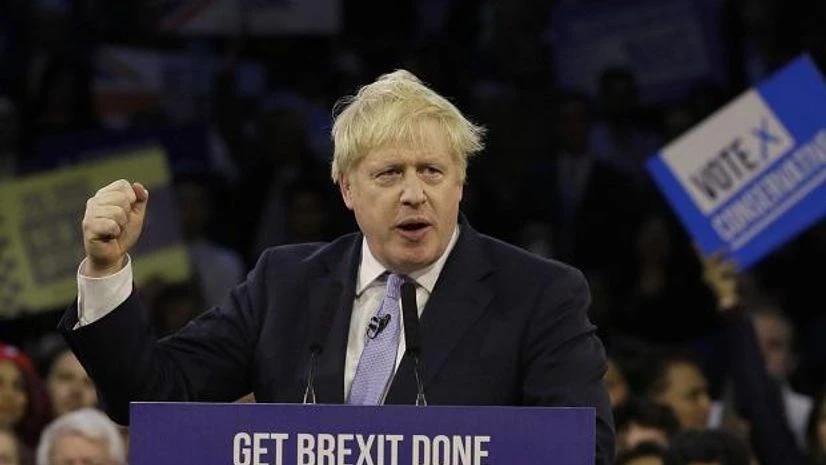Britain moves a step closer to a historic departure from the European Union on Tuesday, after more than three years of bitter division and political drama, as Prime Minister Boris Johnson brings his Brexit deal back to parliament without the threat of defeat, deadlock or delay.
Lawmakers begin three days of debate on legislation to enshrine Johnson's divorce deal, with few hurdles to its passing expected after he won a comfortable majority at recent elections.
The air of inevitability that Brexit was finally about to happen contrasts starkly with the repeated postponements and rejections of the previous deal of his predecessor Theresa May that plunged Britain into political and economic uncertainty.
The lack of anticipated drama has instead seen focus shift to potential conflict between the United States and Iran. But the Conservative leader is still up against the clock.
Both the UK and European parliaments must ratify the deal before Britain's January 31 departure date, when a so-called transition phase to the end of the year will kick in.
MPs gave their initial approval to the Withdrawal Agreement Bill in a vote on December 20, a week after Johnson secured a majority of 80 in the 650-seat House of Commons.
More From This Section
They now have three days of debate before the bill passes to the unelected House of Lords for further scrutiny next week.
Opposition lawmakers and troublesome peers will try to amend the text but with such a comfortable majority, Johnson is virtually certain of getting it through on time.
In a sign of his confidence, Johnson's government announced it would hold a new post-Brexit budget vote on March 11, to "seize the opportunities that come from getting Brexit done".
The main opposition Labour party was meanwhile focused on the start of a campaign to replace veteran socialist Jeremy Corbyn as leader.
His divisive leadership and ambivalence over Brexit were blamed for Labour's stinging defeat and loss of support in its heartlands of northern England.
Britons voted in the 2016 referendum to end more than four decades of integration with the EU, but it has taken nearly four years of infighting and two general elections to implement the result.
Johnson now looks set to finally make it happen, even if a potentially bigger battle awaits on future ties with the EU.
The British premier will hold his first meeting with the new European Commission president, Ursula von der Leyen, in London on Wednesday.
Both sides are keen to prepare for talks on their future trading relationship, although these cannot start formally until Britain leaves the EU.
The Brexit deal includes a transition period in which ties remain unchanged in practice until December 31, 2020, to provide continuity until a new economic partnership can be agreed.
EU officials -- including von der Leyen herself -- have warned this is a very tight timeframe, but Johnson insists he will not opt to extend the transition period.
Commission spokesman Eric Mamer said Monday that von der Leyen would "discuss with the prime minister how to try to overcome these challenges and make sure that we can come out with a positive agreement at the end of the year".
The meeting, which will also be attended by EU Brexit negotiator Michel Barnier, will "set the scene", he added, but would not go into details.
Many opposition MPs believe Johnson cannot negotiate a new trade deal with Brussels in 11 months, and are seeking to amend the Withdrawal Agreement Bill to allow for more time.
Other amendments put forward include stronger rights for around 3.5 million EU citizens living in Britain after Brexit.
Expatriate rights are already covered in the Brexit deal, alongside Britain's financial liabilities, the transition period and new trade arrangements for Northern Ireland.
Meanwhile, a group of eurosceptic lawmakers has tabled an amendment to get Big Ben to chime for Brexit on January 31 in a symbolic celebration of the landmark moment.
A previous attempt for the bell to ring out on the first Brexit date of March 29, 2019, was blocked by the then-House of Commons speaker John Bercow.

)
